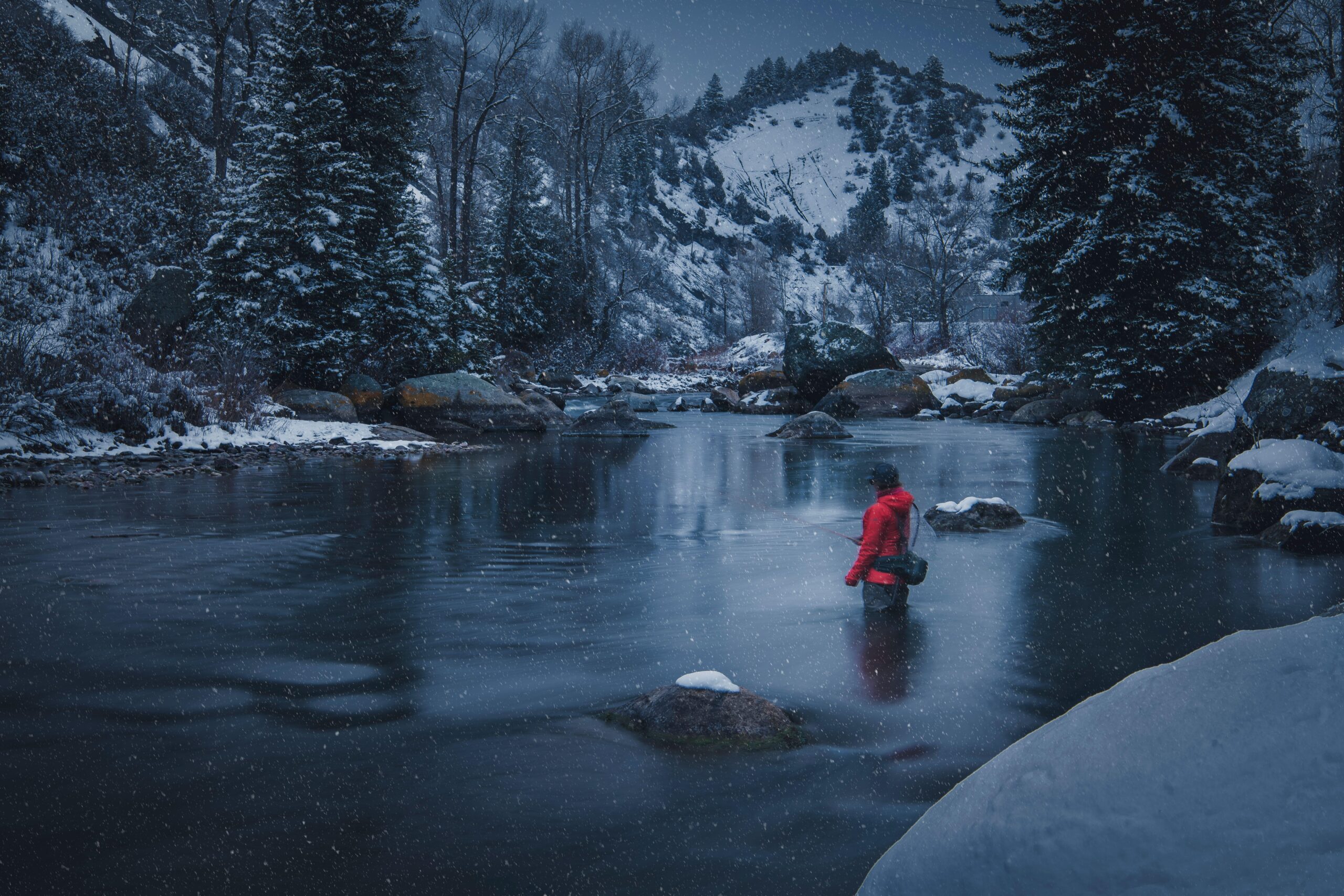
🌿 Now booking for the 2025 season | Learn more about our experiences today!
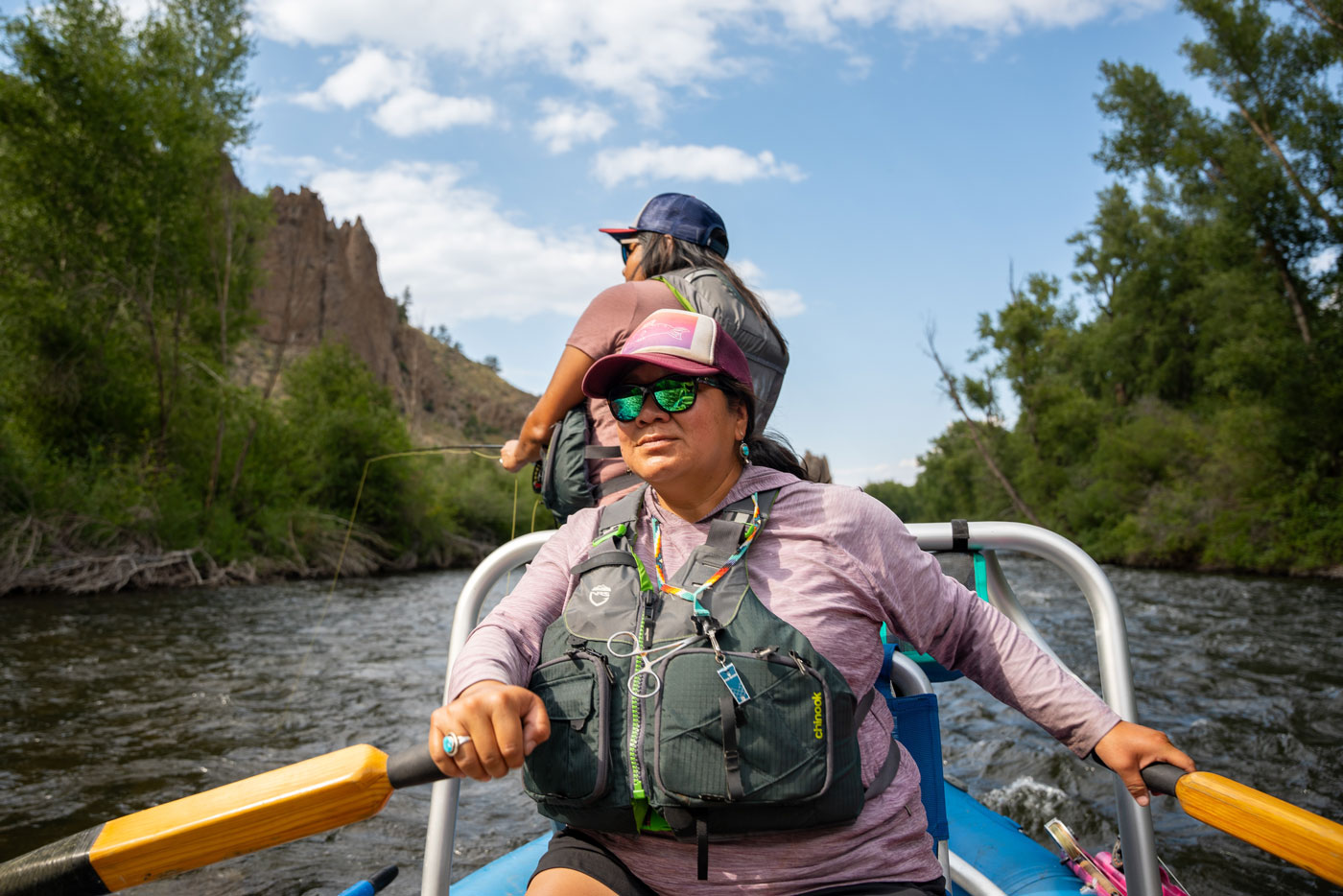
I didn’t grow up fishing or hunting. Nothing really “outdoorsy.” The exposure to my outdoors was playing outside as a kid whether it was soccer and running track, or playing on the Navajo reservation when visiting my grandparents. It wasn’t until college, where I explored yoga and hiking Utah’s outdoors.
I fell in love with the sense of wonder and curiosity of what’s around each trail bend or over the next mountain to climb. I grew obsessed and wanted to learn more about the outdoors. I moved to places that could help me explore my sense of adventure – Alaska, Grand Canyon, Oregon, the High Sierra Nevada in California, Wyoming, and now Colorado. All during which I tried new things and eventually found jobs that allowed me to instruct or teach outdoor activities like hiking, backpacking, skiing, whitewater rafting, and eventually fly fishing.
I have always had a fear of whitewater and going to whitewater guide school in 2013 helped me learn how to better read water and work with it and not against it. One achievement was being accepted onto a NOLS whitewater instructor course. With hundreds of applications, I was one of 8 that was selected for this course. When I started whitewater instructing, I also had a deep desire to connect my relationship with water to my Indigenous culture. Water is life – it brings life, it helps sustain life, and can also end life – it must be respected.
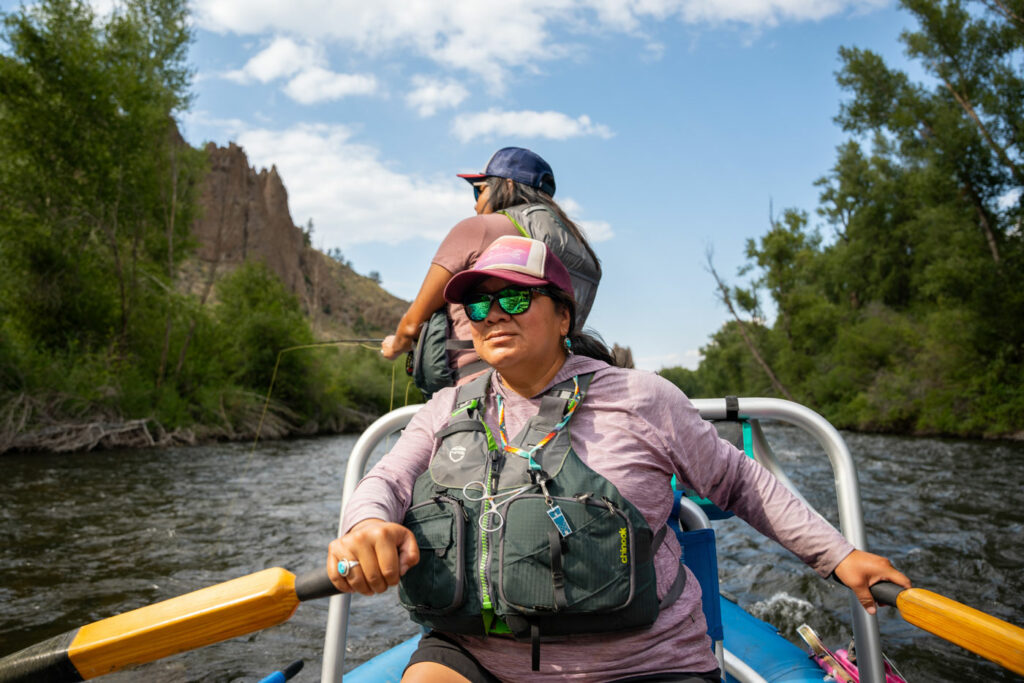
I carried my whitewater skills while crossing numerous states and it was in 2016 I found myself living in Lander, Wyoming. It was here where I noticed that a lot of people went fly fishing after work. I mostly noticed they weren’t all in the “get up.” Meaning they weren’t in the vests, waiters, boots, and they didn’t have “all the gear.” It was just something so simple and seemed accessible right after work. I didn’t know shorts and Chacos were acceptable in a seemingly “gentleman’s sport.”
They just walked down the local river, cast in a couple lines, caught a few fish, released them and then went home. I was intrigued. At the time, my work offered free outdoor gear rentals and fly fishing equipment was part of that. I remember going to pick up a fly rod, reel, small box of flies and then opening up YouTube. “How to Fly Fish,” was my search. I remember the screen filling with a bunch of old white guys enthusiastically over explaining too much. I had to turn the volume off and observe. “How to tie fly fishing knots,” was my next search, and since I lived in a rural area of Wyoming, there wasn’t much cell service so I had to leave it to my memory when I got to the river. Back then, YouTube didn’t have a download option.
I instantly became frustrated on the river, trying to remember the knots and ended up just tying lots. I got tangled, I caught trees, I even ended the day by falling in the river. Shaking my fists in the air wondering why people do this?! All the videos made fly fishing look so serene, calm, and beautiful.
My goal was to catch at least one fish and quite honestly, if I did catch a fish, I am not even sure I would know how to retrieve the hook. “How to remove a hook from a fish,” was my next search. My goal turned into an obsession, it was like a big puzzle I was trying to figure out; what do fish eat? What types of flies should I be using? Where do most fish live? I had so many questions.
During this time of my life I was an active online dating app user. Having just done a research study measuring narcissism and online dating profile pictures, I noticed a high volume of men holding fish in their profile pictures. I decided to leverage my online resources to learn how to catch a fish.
I eventually found a fish mentor that helped me hone in my skills. This mentor exposed me to different rivers like the Henry’s Fork, South Fork Snake, Green River, and the Big Horn. I will never forget this summer slamming huge foam hoppers on the water from the drift boat then having a large brown trout smack the fly. The rainbows were incredibly aggressive and something in me lit up, I was hooked!
I surpassed my goal and my goals turned into fishing other waters, to then eventually create an inclusive culture for others to be able to get this experience. Over my time of learning, I also learned that sometimes I didn’t feel safe, welcome, and couldn’t look past the obvious lack of representation in the media when it comes to fly fishing. While I had a fun time on the water, I also experienced racist and sexist comments. I started to recognize who does and doesn’t have access to clean water. I noticed the roots of fishing in general were Indigenous tribes that fish for subsistence, yet are not represented.
It was the observations of learning how to fly fish in a more realistic approach and experiencing racism and sexism. I wanted to build a community of others learning how to fly fish and see if others experience the same thing I do on the water. Awkward Angler was then established as an Instagram community to hold these awkward conversations. Knowing and showing it can be awkward learning how to fly fish, and it’s also awkward to discuss diversity, equity and inclusion in the fly fishing industry.
When I came across an account called Brown Folks Fishing it was the first time I saw all different kinds of folks that were not the primary demographic. I signed up to be an ambassador, to be the representation within the fly fishing space. During this time, I thought I was winding down my guiding career of over 10 years, however I actually felt a pull to return back to guiding because of the lack of our representation in the industry. If we can’t see ourselves out there, then we won’t put ourselves out there. I found that fly fishing was also a gateway towards conservation. I loved my experiences on the water when I could observe and connect with all living things. There is a term in my culture called Hozho, meaning to live in balance and harmony with all living things. I find this philosophy important when on the water. To be able to connect with clean air, clean water, the hatches, birds, and eventually a fish, I knew this wasn’t just a sport to catch them all or even the biggest. The littlest fish has huge significance that contributes to a healthy ecosystem.
I partnered with Brown Folks Fishing to co-create the Angling for All Pledge, which establishes a benchmark for learning and a commitment to addressing racism and inequality in fishing and its industry. The first to sign on was Orvis, following their lead was then Patagonia Fly Fish, United Women on the Fly, and Casting for Recovery. This was an intentional space to learn how to build authentic community, grow organizational self awareness, and learn how to create meaningful action.
Here in my area, the Gunnison Valley, it seems that history starts at 1800. With gold medal water fly fishing, the culture is in numbers and size. While that is still fun and very much part of guiding, I see an opportunity for the outfitting and guiding industry to also connect clients with accurate history of the areas we get to fish on, as well as setting people up for a life long relationship with fishing, water and all living things. I also find it important to diversify our watersheds with historically excluded identities. Everyone should feel safe, welcome, and celebrated.
Manifesting the desire to take fly fish guiding deeper with nods to my Indigenous culture, I met the Massie family. With identical aspirations and visions, we were able to be stronger as a BIPOC community and come together. I am so proud of the work that I’ve done in the industry. And I am looking forward to growing our community through Wanderland Outdoors. I am seeing more representation, and I want to see more not only be introduced to fly fishing and hunting, and to also create more pathways to guiding and outfitting. I’m looking forward to working with top-notch guides with gold medal service standards, all while connecting and living in Hozho.

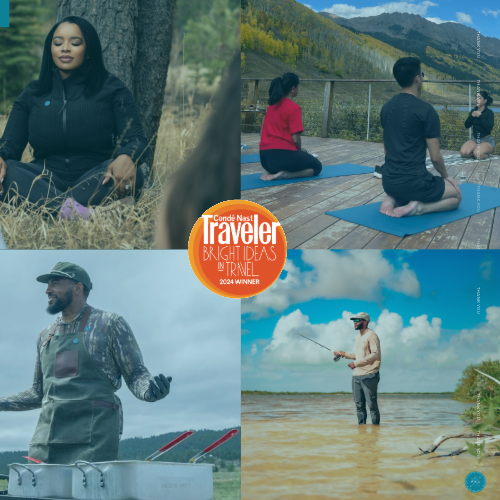
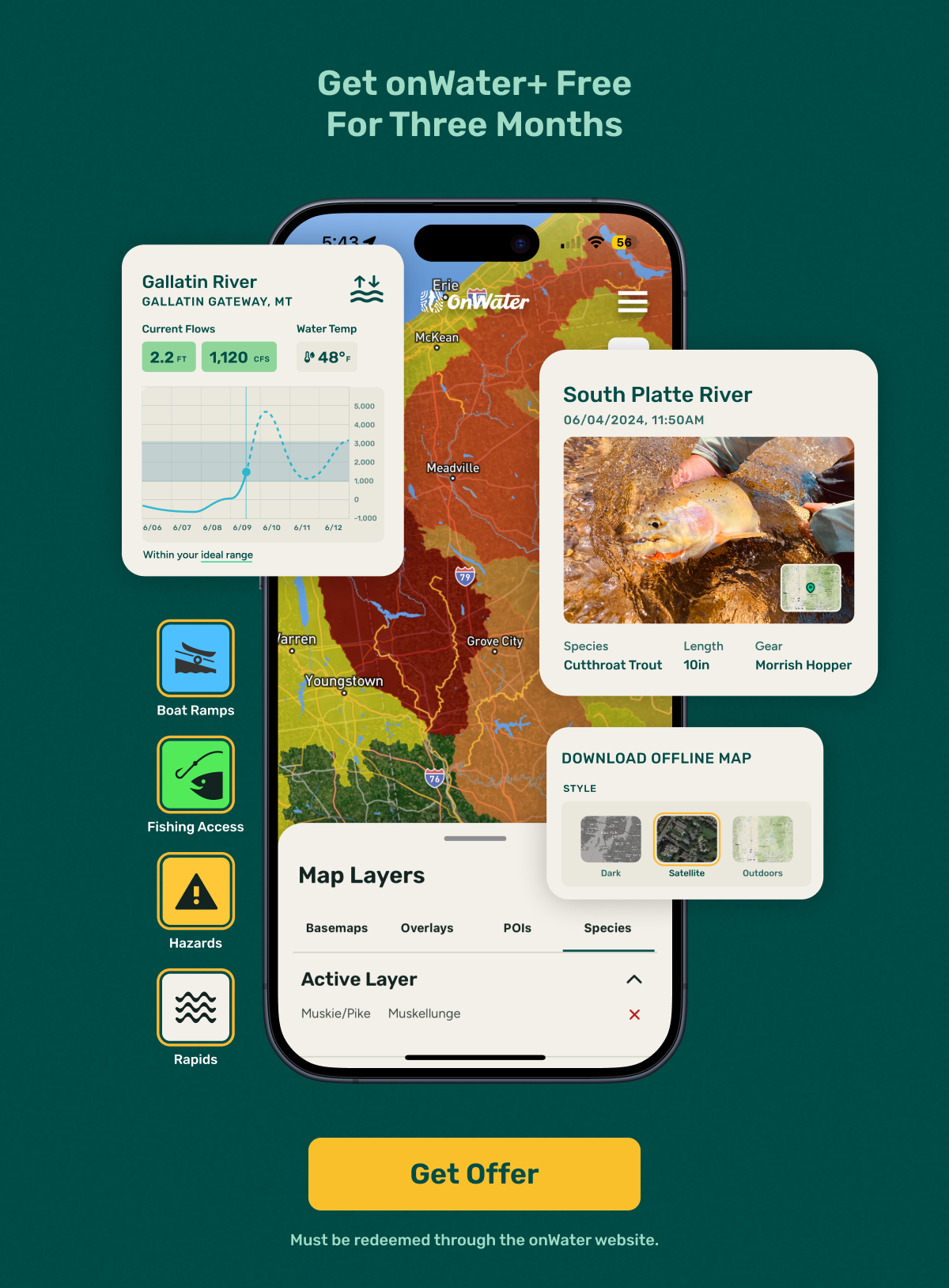
Wanderland Outdoors, established in 2023 by Angel, and Bobby Massie, was created by their love of the lessons, freedom, mindfulness, and beauty of the outdoors. The drive to be good stewards of the land, and waters they enjoy, while providing guests with a premium experience in the outdoors was something they endeavoured to create.
All Rights Reserved | Wanderland Outdoors 2025 | Terms & Conditions
Created and managed by Hybrd Digital